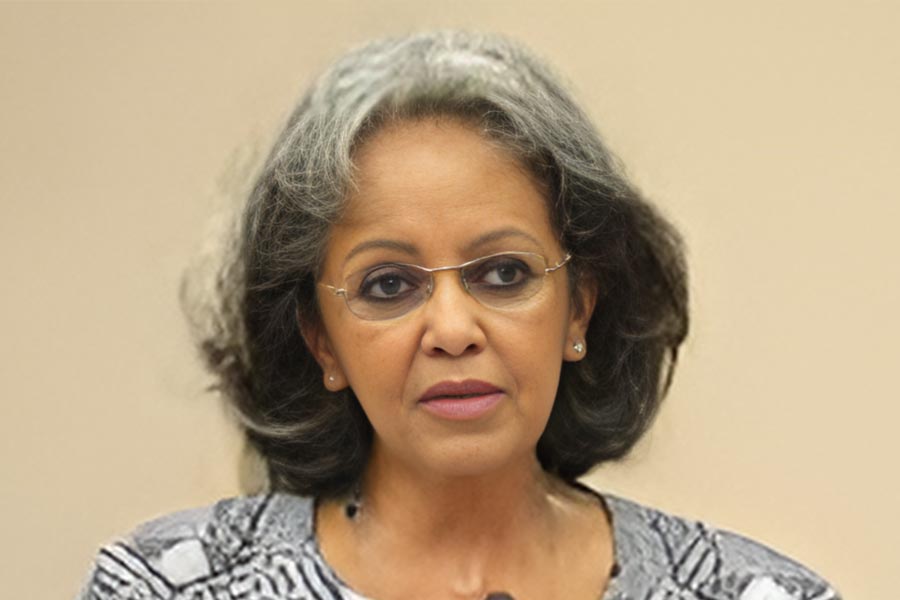
Radar | Jun 15,2025
Nov 18 , 2023
By YORDANOS BELETE (
FORTUNE STAFF WRITER )
Heavy hitter business owners convened to chart a course on the fortunes and adversities of the startup ecosystem last week. In the presence of a policy far from constituting essential elements, the human capital and financial constraints were highlighted amidst possibilities in large market share and tame competition.
Industry insiders such as Samrawit Fikru, CEO of Hybrid Designs, Kibret Abebe, CEO of Tebita Ambulance and Yonas Moges, CEO of Caliber Hotel Consultancy were among panellists on the first of the two-day discussion hosted by the US Embassy. They shared insights on overcoming low access to finance following creditors who are too guarded in their investments.
Samrawit reminisced on her struggle to find finance with close to 300 turndowns before launching the popular taxi-hailing company Ride. She indicated the undeniable role of the private sector in boosting start-ups that complement their own business.
"It only takes that one investor," she said.
Kibret concurs. He argues financial institutions should expand their loan portfolio and consider the concept of social entrepreneurship. While profit acceleration is a well-thought-out process, Kibret boldly states: "Not many understand impact-driven business."
In a growing economy that is gradually opening up, the lack of skill sets is a frustrating challenge for business owners.
Yonas weighed in on his encounters. He observes that while acquiring textbook knowledge is the mantra, actual skills required to execute the job efficiently are overlooked. Amidst growing competition, possessing the right skill set is deemed critical by the business owner.
Although grants are availed from several project pumps, resource allocation and utilisation have clouded the outcome despite acquiring funds.
Abel Tefera, trainer and project manager at STEMPower, observes major portion of allocated grants are spent on program launches, workshops and events. He points towards a centralised management mechanism, such as a database, that could track the efficient use of resources.
With the start-up proclamation that includes the development of an innovation fund hunched in the hallways of several ministries for three years, entrepreneurs have been pushing for alternative funding schemes. In a recent discussion, State Minister for Finance Eyob Tekalign (PhD) suggested that the second homegrown economic reform will have modalities for the establishment of multiple innovation funds, promising at least four through the mobilisation of support from foreign backers.
In the meantime, a well-tailored business plan and essential documents are pointed out as crucial for startups while creative schemes to pool initial capital might be necessary, according to Michael Addisu, founding board member at Nisir Microfinance Institution.
While waiting on policy changes, access to finance from the state policy bank and private sector such as MasterCard Foundation was mentioned as notable in the panel.
The CEO of Entrepreneurship Development Institute (EDI), Hassen Hussien, stated they are betting on a four billion Birr pledge from the Development Bank of Ethiopia and a 12 million dollar grant from the MasterCard Foundation. They plan to provide loans with non-collateral and lower interest rates for startups with the Commercial Bank of Ethiopia.
While anticipating the risks and difficulties of starting a business in a developing country like Ethiopia, the significance of starting small was mentioned by an investor.
With the bulk of the population young and gradual liberalisation of the economy, Addis Alemayehou, chairman of Kazana Group, sees large markets and little competition that present significant opportunities.
The responsibility of the federal government in developing a comprehensive set of policies, standards and initiatives that are tailored to the context of Ethiopia was indicated by panellists. Meanwhile, launching the NEST Initiative was praised as a good track for incubating competent startups. It is a partnership between the ministries of Innovation & Technology, Labor & Skills, Revenues and Customs along with state-owned enterprises such as Ethiopian telecom and the Ethiopian Intellectual Property Authority.
For Jirata Nemera, director of trade licensing & registration at the Ministry of Trade & Regional Integration, seeing the glass half full and highlighting the efforts of his institution in creating a favourable environment was the way forward. He indicated amendment of restrictive regulations to simplify the registration process by lowering the requirements.
PUBLISHED ON
Nov 18,2023 [ VOL
24 , NO
1229]

Radar | Jun 15,2025

Commentaries | Jul 25,2020

View From Arada | Aug 23,2025

Editorial | Sep 06,2025

Commentaries | May 14,2022

Viewpoints | Mar 01,2024

Fortune News | Mar 30,2019

Radar | Jul 27,2019

Verbatim | Feb 17,2024

Editorial | Mar 30,2024

Dec 22 , 2024 . By TIZITA SHEWAFERAW
Charged with transforming colossal state-owned enterprises into modern and competitiv...

Aug 18 , 2024 . By AKSAH ITALO
Although predictable Yonas Zerihun's job in the ride-hailing service is not immune to...

Jul 28 , 2024 . By TIZITA SHEWAFERAW
Unhabitual, perhaps too many, Samuel Gebreyohannes, 38, used to occasionally enjoy a couple of beers at breakfast. However, he recently swit...

Jul 13 , 2024 . By AKSAH ITALO
Investors who rely on tractors, trucks, and field vehicles for commuting, transporting commodities, and f...

Nov 1 , 2025
The National Bank of Ethiopia (NBE) issued a statement two weeks ago that appeared to...

Oct 25 , 2025
The regulatory machinery is on overdrive. In only two years, no fewer than 35 new pro...

Oct 18 , 2025
The political establishment, notably the ruling party and its top brass, has become p...

Oct 11 , 2025
Ladislas Farago, a roving Associated Press (AP) correspondent, arrived in Ethiopia in...